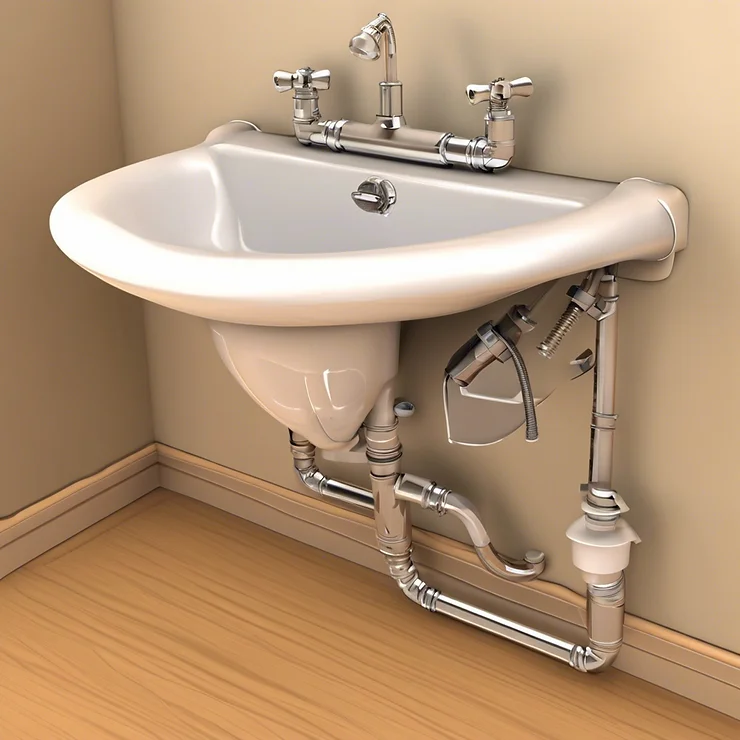[web_stories title=”true” excerpt=”false” author=”true” date=”false” archive_link=”true” archive_link_label=”” circle_size=”150″ sharp_corners=”true” image_alignment=”left” number_of_columns=”1″ number_of_stories=”6″ order=”DESC” orderby=”post_title” view=”carousel” /]Plumbing is an essential part of every home and also a top priority in taking care of the home. Every homeowner should know a few things to keep their plumbing system in good shape. By following general plumbing safety tips, seasonal plumbing tips, and dealing with common plumbing issues homeowners can maintain plumbing, prevent major issues, and keep their homes in excellent condition. The bathroom or kitchen sink also faces plumbing issues including plumbing issues.
Home’s plumbing system types
Contents
Most homes have two primary plumbing systems: the water supply system, which is used to bring clean water into the house, and the drainage system, which removes wastewater.
Key components:
- Pipes: These are used to transport water.
- Valves: These are used to control the water.
- Fixtures: Sinks, toilets, and tubs where water is used.
- Traps: Prevent sewer gases from entering the home.
- Vent: It helps to regulate air pressure in the drain pipes.
Familiarizing yourself with these components makes it easier to address common plumbing issues.
General plumbing safety tips
Plumbing safety is always a top priority when working on any plumbing project. Here are some essential plumbing safety tips to keep in mind:
- Always turn off the water supply: Before starting the plumbing project, you have to locate the main water shut-off valve and turn it off. Because this helps prevent flooding and water damage.
- Use proper tools: Must have the right tools, like wrenches, pliers, and plumber’s tape.
- Wear protective gear: Use gloves and safety glasses to protect yourself from sharp objects and harmful chemicals.
Seasonal plumbing tips
Each season brings unique challenges for your plumbing system. Following these seasonal plumbing tips helps you maintain your system year-round.
Winter plumbing tips:
- Insulate pipes: Cold weather causes pipes to freeze and burst. Insulate exposed pipes in your basement, attic, and crawl spaces.
- Disconnect outdoor hoses: Remove hoses from outdoor faucets to prevent freezing and potential pipe bursts.
- Keep the heat on even if you’re leaving your home for an extended period, keep the thermostat set to at least 55°F to prevent frozen pipes.
Spring plumbing tips:
- Check for leaks: As the weather warms up, inspect your home for leaks that may have developed over the winter.
- Test sump pumps: Spring often brings heavy rains, so ensure your sump pump is working correctly to prevent basement flooding.
- Clean gutters and drains: Remove debris from gutters and outdoor drains to prevent clogs.
Summer plumbing tips:
- Check sprinkler systems: Inspect your sprinkler heads for damage and ensure they’re watering efficiently.
- Handle sewer line issues: Summer is the perfect time to address any sewer line repairs before the ground hardens in the fall.
- Reduce water usage: With more outdoor activities, be mindful of your water consumption to avoid overwhelming your plumbing system.
Fall plumbing tips:
- Water heater maintenance: As temperatures drop, ensure your water heater is functioning correctly and consider flushing it to remove sediment buildup.
- Inspect outdoor faucets: Check for leaks or drips from outdoor faucets that might freeze and cause problems during winter.
- Seal gaps: Prevent drafts by sealing gaps around doors, windows, and where plumbing enters the home.
How to deal with common plumbing issues?
As a homeowner, knowing how to handle common plumbing problems can save you time and money. Here are solutions to some of the most frequent issues:
Clogged drains:
- Use a Plunger: For minor clogs, a plunger can often dislodge the blockage.
- Drain Snake: For more stubborn clogs, use a drain snake to clear the pipes.
- Preventative Measures: Avoid pouring grease or large food particles down the drain, and consider installing a drain guard.
Leaky faucets:
- Replace Washers or O-rings: A common cause of leaks is worn-out washers or O-rings. These are inexpensive and easy to replace.
- Tighten Connections: Sometimes, simply tightening the faucet connections can stop a leak.
Running toilets:
- Replace the flapper valve: Often, a running toilet is caused by a faulty flapper valve. Replacing it is a straightforward fix.
- Check the float arm: Adjusting the float arm can also resolve the issue if the toilet’s water level is too high.
Emergency plumbing tips
Emergencies can happen at any time, so it’s essential to know some quick fixes while waiting for professional help.
Shut off the water supply: This is the first step in any plumbing emergency. Knowing the location of your main shut-off valve is crucial.
Temporary fixes:
- Use Teflon tape: If you spot a leak, use Teflon tape to temporarily stop it until a plumber arrives.
- Stop overflowing toilets: Turn off the water supply to the toilet and use a plunger to attempt to clear the blockage.
Handling frozen pipes:
- Thawing pipes safely: Use a hairdryer or space heater to gently thaw frozen pipes. Avoid open flames as they pose a fire risk.
- Preventative action: Keep a slow drip of water flowing during extreme cold to prevent pipes from freezing.
Conclusion:
By following these basic plumbing tips and staying aware of seasonal challenges, you can tackle minor repairs and maintain your system with confidence. Remember, safety first If you’re ever unsure about a plumbing task, don’t hesitate to call a professional. Proper maintenance and timely repairs will ensure your plumbing system runs smoothly throughout the year, saving you time, money, and stress.

